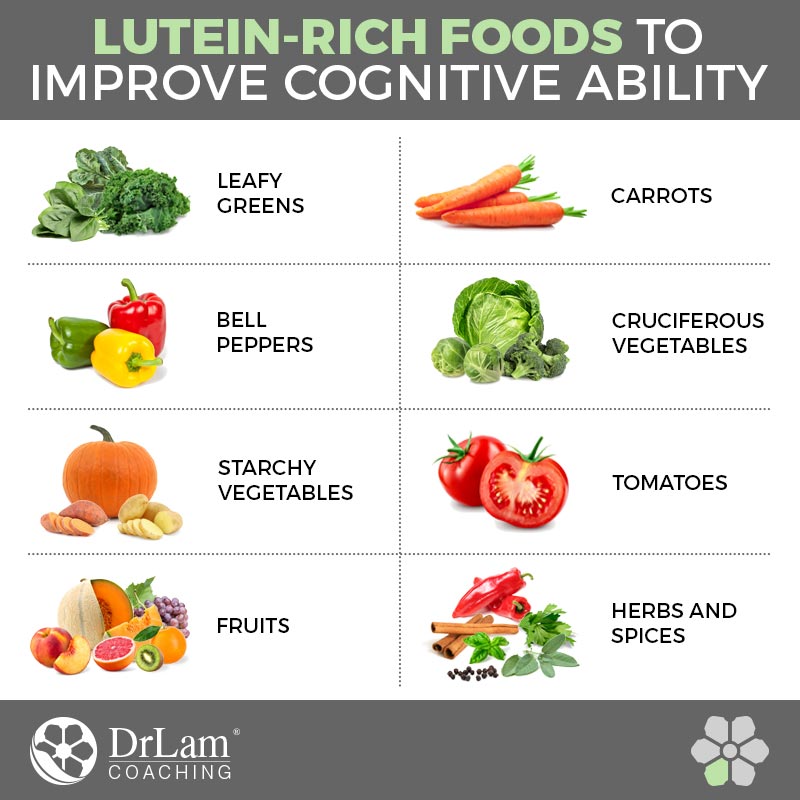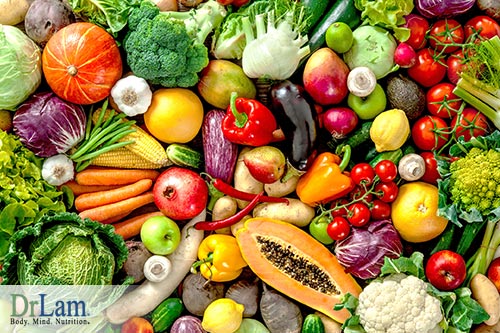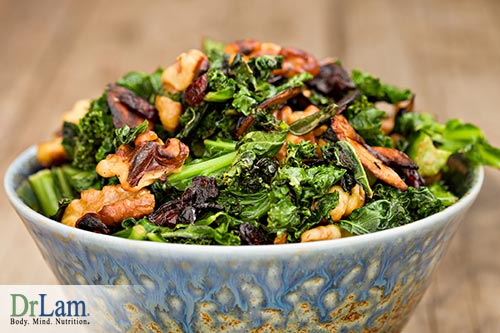 Cognitive disorders are a major threat, and we all start to worry about them as the years go by. We all want a fully functional memory. But unfortunately, memory starts to decline as we age. Further, research shows that people who experience consistent stress throughout their lifetimes are more vulnerable to memory decline at an early age. The good news is that living a healthy lifestyle and eating nutritious food rich in lutein can significantly help in improving cognitive ability.
Cognitive disorders are a major threat, and we all start to worry about them as the years go by. We all want a fully functional memory. But unfortunately, memory starts to decline as we age. Further, research shows that people who experience consistent stress throughout their lifetimes are more vulnerable to memory decline at an early age. The good news is that living a healthy lifestyle and eating nutritious food rich in lutein can significantly help in improving cognitive ability.
Stress has been closely related to cognitive health. Although there is much to be learned about the reasons for mental decline, several scientific studies have documented stress as a major factor contributing to the development of various cognitive disorders such as dementia and Alzheimer’s disease. Studies suggest that long-standing stress can increase the risk of decline in cognitive ability. Over-secretion of the stress-fighting hormone cortisol, in the long run, can interfere with your cognitive health as well as physical health. This can further lead to mental decline and fatigue.
The NeuroEndoMetabolic (NEM) Stress Response in your body is a complex system of organs, circuits, and systems which helps to manage stress. When your body experiences stressful conditions, the NEM stress response signals your adrenal glands to secrete cortisol for managing stress. However, ongoing stress exerts more pressure on your adrenals to secrete more cortisol. Excessive cortisol levels can cause negative effects such as poor cognitive health and fatigue. Frequently experiencing extreme fatigue along with symptoms of brain fog, insomnia, anxiety, low concentration levels, difficulty in waking up, low energy levels, inability to deal with stress, or craving for salty and fatty foods can be signs of Adrenal Fatigue Syndrome (AFS).
 Spinach and kale can help boost your physical fitness. Scientific research reveals that these superfoods may also help in improving cognitive ability. The study involved 60 volunteers between 25 to 45 years of age. During the study, it was found that the middle-aged volunteers who received a higher dosage of the nutrient lutein developed neural responses equivalent to that of the younger volunteers. Green leafy vegetables such spinach and kale are great sources of lutein. The nutrient is also found in avocados and eggs.
Spinach and kale can help boost your physical fitness. Scientific research reveals that these superfoods may also help in improving cognitive ability. The study involved 60 volunteers between 25 to 45 years of age. During the study, it was found that the middle-aged volunteers who received a higher dosage of the nutrient lutein developed neural responses equivalent to that of the younger volunteers. Green leafy vegetables such spinach and kale are great sources of lutein. The nutrient is also found in avocados and eggs.
Another study was conducted on older individuals with cognitive decline. Young to middle-aged individuals were selected for the study to observe if there could be any significant differences in cognitive health based on lower and higher lutein nutrition levels.
Though cognitive decline is known to occur with aging, it can also be experienced in the thirties. Researchers were keen to understand the impact of diet on cognition throughout life. Lutein levels were measured in the participants at the end of the study. Lutein levels in the eyes were measured by subjecting the participants to a flickering light from a scope. Participants were also given an attention-testing task, during which the neural activity of the brain was measured by using electrodes on the scalp.
At the end of the study, it was revealed that older participants with higher lutein levels had a neuro-electrical signature similar to that of younger participants. Participants with higher lutein levels had more cognitive resources to complete the testing task, suggesting that the lutein nutrient can function as a significant protective agent for improving cognitive ability.
If a greater lutein intake can help fight cognitive decline, then it is highly recommended to include lutein-rich foods in your diet. When you take lutein, the nutrient accumulates in the tissues of your eyes and brain. This makes it easy to measure lutein level in your body without the use of any invasive techniques.
Lutein is a carotenoid antioxidant which supports great eye health. The nutrient is abundantly found in leafy green vegetables, certain starchy foods, and in bright yellow and orange colored fruits and vegetables. Besides boosting your vision, lutein can help improving cognitive ability, reducing inflammation, fighting cancer and eye disorders, and maintaining a healthy heart and brain. The daily recommended lutein amount is 10 mg or more per day. It can be obtained by including lutein-rich foods in your daily diet.

The human body is not capable of producing lutein by itself. It has to be obtained through diet. Leafy vegetables and orange and yellow fruits and vegetables contain lutein. It also helps to consume healthy fats from plant sources with your lutein-rich foods to aid absorption.
Here are foods that are rich in lutein:
Leafy Greens - Leafy green vegetables are the best sources of lutein. Fresh greens especially have higher nutrition content. Spinach, kale, collard greens and turnip greens are all packed with lutein. Consider adding them to your salads, soups or smoothies.
 Cruciferous Vegetables - They include cabbage, broccoli and Brussels sprouts. Besides being rich in lutein, these vegetables are also good sources of vitamin A and antioxidants. You can sauté or steam to make a nutritious accompaniment to a meal of your choice. Broccoli is rich in multivitamins, antioxidants as well as lutein. Chop broccoli to add to your stir-fries or simply steam until al dente.
Cruciferous Vegetables - They include cabbage, broccoli and Brussels sprouts. Besides being rich in lutein, these vegetables are also good sources of vitamin A and antioxidants. You can sauté or steam to make a nutritious accompaniment to a meal of your choice. Broccoli is rich in multivitamins, antioxidants as well as lutein. Chop broccoli to add to your stir-fries or simply steam until al dente.
Starchy Vegetables - If you are staying away from starchy vegetables, think twice. Certain starchy vegetables, such as potato, sweet potato, and pumpkin can add to your lutein intake. While making soup, consider replacing cornstarch with starchy vegetables to thicken your soup.
Fruits - Fresh fruits including melon, peach, orange, kiwi, grapefruit, and grapes also contain lutein. Consider using fresh fruits for making fruit salads or fruit juice.
Carrots - This humble vegetable is a powerhouse of nutrients. The great thing about carrots is that you can add them to almost any dish or simply chop them to enjoy straight away as a healthy raw snack.
Bell Peppers - The presence of lutein gives bell peppers their distinct yellow and red color. Chop them and add to your hot dishes or salads for a great flavor.
Tomatoes - Increase your lutein intake by adding fresh organic tomatoes to your dishes. Add chunks of fresh sliced tomatoes to your curries, salads, and soups for an enhanced flavor and texture.
Herbs and Spices - Spices such as paprika, cayenne, basil, coriander, oregano, sage, thyme, cumin seeds, mustard seeds, cinnamon, and black pepper contain lutein. They infuse a great flavor and aroma to your dish as well as help in improving cognitive ability.
Here is an easy warm green salad prepared with lutein-rich foods to help boost your memory. This nutritious salad is packed with lutein, multivitamins, antioxidants, and minerals. A colorful blend of fresh greens, carrots, corn, and walnuts is tossed in a healthy salad dressing. Walnuts add a nice crunch, while lemon zest infuses a refreshing flavor. Blanching the greens helps your body to easily absorb the nutrients. Excess cooking can turn your vegetables soggy and destroy the valuable nutrients. Therefore, make sure you cook avoid overcooking the vegetables to preserve taste as well as nutritional content.
Feel free to add steamed vegetables such as broccoli, Brussels sprouts, and cabbage to make a complete meal. You can always include nuts and spices of your choice.

Millions of people worldwide suffer from cognitive disorders. Stress is one of the major factors contributing to poor cognitive health. Excess stress has many side effects on the body including AFS and declining mental health. Scientific studies suggest that lutein-rich foods can help remarkably in improving cognitive ability. Nutritious food helps support a healthy body and brain, and they are essential for overall wellbeing.
Positive thinking, exercising and eating a nutritious diet rich in lutein can have a significant positive impact in recovering from AFS and boosting mental health.
© Copyright 2018 Michael Lam, M.D. All Rights Reserved.
Brain-training games, practicing a hobby, mindfulness meditation, adequate sleep, exercise, reducing stress, along with nutritious diet can greatly help in improving cognitive ability.
